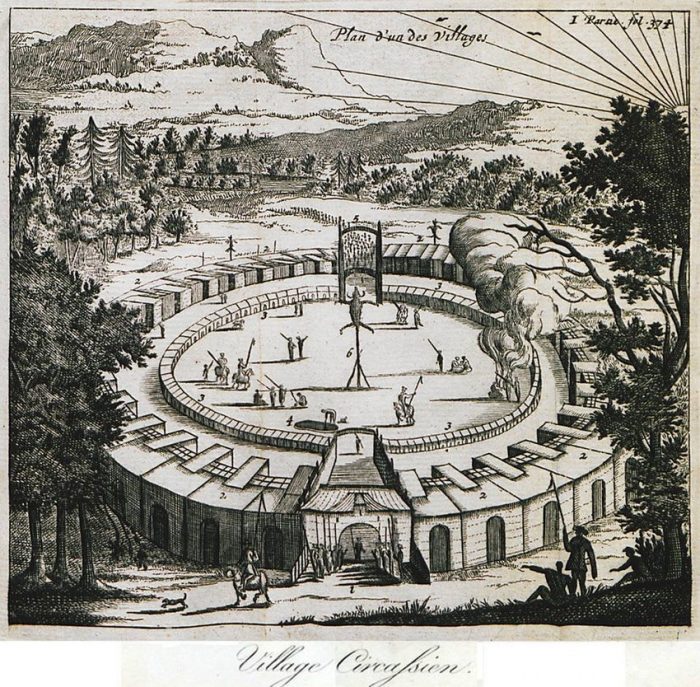The Immortal Circassia
Adel Bashqawi
May 21, 2023

Every year on the twenty-first of May, the sad occasion of Circassian Memorial Day returns once again, reminding those whom they care about of the need to continue carrying the torch of freedom for the Circassian nation with the aim of reaching the right time and place to achieve this. It is not a day for weeping and wailing over the tragedies of the steadfast and ambitious nation, nor a day for listening to one of the eloquent orators who does not mean what he says, regardless of the language used, even if it is the Circassian language.
However, some of these low-key figures would exploit it and take advantage of the occasion just to prove their existence by uttering resonant and flowery phrases that are nothing more or less than completely unsatisfying. Hence, some of those who are present throughout the Circassian world, whether in the homeland or in the diaspora, utterances do not have a logical goal. They only intend to prove and experience their existence and dictate their experience in their communities. They in no way prove that they had a logical aim. They even say what they want without paying attention to the need to reach the status and level of the audience they are addressing. At other times, they do not mention the concerns and interests sought from reviving such an important memory in contemporary Circassian history.
Circassia has a confirmed history of more than six thousand years. It has consistently and positively contributed to human civilization. Circassian culture and civilization originated in the northwestern Caucasus and have existed for a long period of time. Almighty God has endowed the Circassians with a strategic location and unlimited resources. It is geographically located within the Caucasus Plateau between Europe and Asia, which is considered a strong natural obstacle. It is situated in southeastern Europe, a strategic area in the northwestern part of the Caucasus mountain range that gained economic, military, and political importance. It lies on the northeastern shores of the Black Sea, extending between the Sea of Azov and Abkhazia.
Since ancient times, the Circassians have had friendly and trade relations with the ancient Greeks, Genoa, Florence, Venice, and dozens of other nations in the region and beyond. “The ancient Circassians are believed to have traded extensively with the ancient Greeks and later with Venetians and Genoese.”[1] Even in the Medieval Period, they had good relations with the Greeks and Byzantines, especially when they converted to Christianity. “As a result of Greek and Byzantine influence, Christianity spread throughout the Caucasus.”[2] This later developed into an independent Circassian church directly affiliated with Constantinople. “Saint George is the patron saint of the Circassian Orthodox Christians.”[3]
“In fact, the political and cultural influence of Byzantium, which began in the Western Caucasus during the reign of Emperor Justinianus, gradually spread with the influence of missionaries who came to the region. These Christian clergy engaged in extensive activities to spread Orthodox Christianity in the region. In this period, when the Circassians began to become intensively Christianized, a clergy called Şogen was established, episcopal offices were established, and churches were built in cities such as Nikopsia, Fanagoria, Tamatarh, and Zihopolis in Zihya.”[4] These developments took place and expanded nearly a thousand years before the establishment of a Russian state as such or even the emergence of the Russian language.
It is not surprising that the insistence of Russian colonial policy on ignoring the truth about Circassian rights continues, by various ways and means. The Russian authorities decided this year to impose a ban on the commemoration of the Circassian tragedy that falls on the twenty-first of May, which is marked every year. The persistence in detracting from the legitimate natural right of Circassian citizens in their historical homeland increases in regard to commemorating the painful memory of the invasion, occupation, extermination, and forced deportation that all members of the Circassian nation suffered from. This stems from the intentional failure of the federal and local authorities to follow international laws and norms, in accordance with the liberties mentioned in the Universal Declaration of Human Rights, without paying attention to the importance of the minimum level of objectivity in dealing with reality and logic.
Thanks to Russia’s colonial policy, death and destruction were brought to Circassia for hundreds of years without the slightest legal and moral obligation. The Circassians and other non-Russian nations have the appropriate opportunity to inform the world and all those who are interested in the truth of the crimes committed against them. Even if it takes a long time to wait for the restoration of legitimate Circassian rights, the Circassians will eventually be able to rise from the ashes again, like the phoenix, to claim their legitimate rights.
***********************
References
[1] https://factsanddetails.com/russia/Minorities/sub9_3d/entry-5108.html
[2] http://everything.explained.today/Circassians/
[4] https://justicefornorthcaucasus.info/?p=1251684480
https://www.facebook.com/groups/194621334006994/posts/924062177729569/
